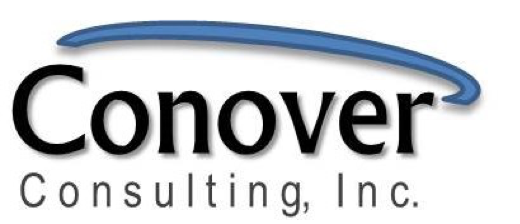Two Books Today’s Leaders Must Read to Stay Fresh and in the Know
Last month we covered managing and leading through continuous disruption. I noted that unexpected and uncontrollable factors ranging from violent weather to lawsuits to the sudden death of a key executive can put even the best laid business plans into a tailspin. I also stressed that, as leaders, we must develop skills for ourselves and our people to help us adapt—and even thrive—under rapidly changing conditions.
Recently, I came across two books containing the kinds of insights and guidance that can help us achieve just this kind of mental flexibility. The profound and well-argued propositions offered by both authors can go a long way in helping us frame our thoughts in such a way we can act and react successfully even in this age of continuous disruption. I strongly recommend both to business leaders regardless of the size of their company or the nature of their industry.
The first book is The Right Kind of Wrong: Why Learning to Fail Can Teach us to Thrive. by Amy Edmondson, currently Professor of Leadership at Harvard Business School. In her earlier book, the landmark work on psychological safety The Fearless Organization (2018), Edmundson describes in detail what it looks like when there is freedom to fail without being shamed (or fired). The book’s central thesis is that when people don’t fear personal reprisals should things go wrong, they are likelier to take the kinds of appropriate risks needed to deal with crisis situations.
Right Kind of Wrong is a good segue from The Fearless Organization as Amy Edmondson promotes the idea of “failing well,” i.e., learning from our missteps. This book also offers valuable insights into the concept of failure, emphasizing that not all our failures are detrimental, and can, in fact, be a real source of growth and learning. Drawing on extensive research, Edmondson distinguishes between good and bad failures, providing readers with a fresh perspective on how embracing the bad can lead to personal and professional development.
In her book, Edmondson described three distinct types of failures:
Basic Failures, which can for the most part be avoided by thoughtfulness and attention to reality. In other words, most occur when people eschew performing simple due diligence, don’t make necessary preparations, or simply aren’t paying attention. Stepping off the sidewalk onto a busy street without checking both ways for traffic is just one common example of a basic failure.
Intelligent Failures, which are part of the traditional scientific process. As anyone who has conducted a scientific experiment knows, most experiments fail to achieve their objectives. Knowing this going in, scientists can use each failure as a clue that gets them one step closer to the truth. As the great inventor Thomas Edison famously quipped about his many failed attempts to create a commercial incandescent lightbulb, “I never failed. I just discovered 10,000 ways not to make a lightbulb.”
Complex Failures, which happen in familiar contexts where many things can go wrong at once. (Often called a failure “cascade.”) Many famous disasters, such as the Space Shuttle Challenger explosion of January 28, 1986, and the sinking of the ocean liner Titanic on April 14, 1912, were caused not by any one single error, but by a series of errors that, over time, compounded upon one another to ultimately result in a massive loss of life.
To reiterate, Edmundson argues that failures are not only inevitable, but essential to long-term success, even in business. A deep dive into “Right Kind of Wrong” can be not only instructive—but liberating.
The second book on my “recommended” list is Tomorrowmind: Thriving at Work – Now and in an Uncertain Future by Gabriella Rosen Kellerman and Martin Seligman. In “Tomorrowmind” the authors provide a guide for thriving in the modern world of work, offering strategies to not only survive but flourish amidst potential chaos and uncertainty. The book presents a future-proofed approach to work, addressing challenges such as automation, globalization, and downsizing while emphasizing resilience and creativity in one's career.
From the conclusion of “Tomorrowmind”: “We know what skills it will take to thrive in the decades of work to come. We will need, first and foremost, an exceptional degree of psychological resilience to allow us to bounce back, unharmed, from these extreme challenges to our well-being. Core to that capability is the cognitive agility to identify and flex into new opportunities as individuals and organizations. We will need a deep connection to our essential why – a strong and steady sense of mattering to fuel the hard work of adapting both at work and at home. … We will need our relationships to protect us from the ills of social isolation. … We can build the skills that we need to rapidly connect even in this extraordinary turbulence.”
To summarize, continuous disruption must also include failure. Accepting this reality, we must learn to thrive in the midst of disruption and mistakes we shall make along the way. Only by giving ourselves the freedom to fail can we acquire the right tools and the insights we need to succeed.
Would you like to know more about how to create a culture of resiliency in your own organization? As a seasoned corporate culture and compensation specialist, I have the knowledge, the experience—and yes, the hard knocks—to know what it takes to stay relevant in a rapidly changing world. Please contact me at laura@conoverconsulting.com to learn more.

